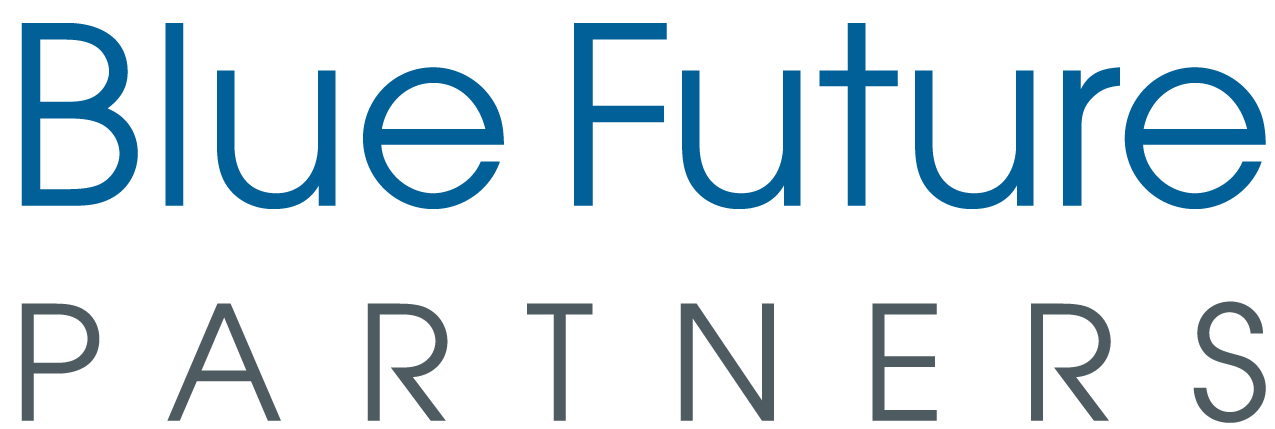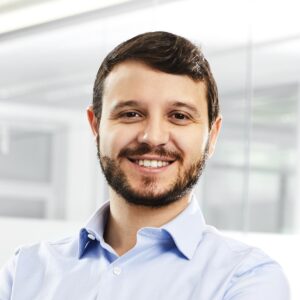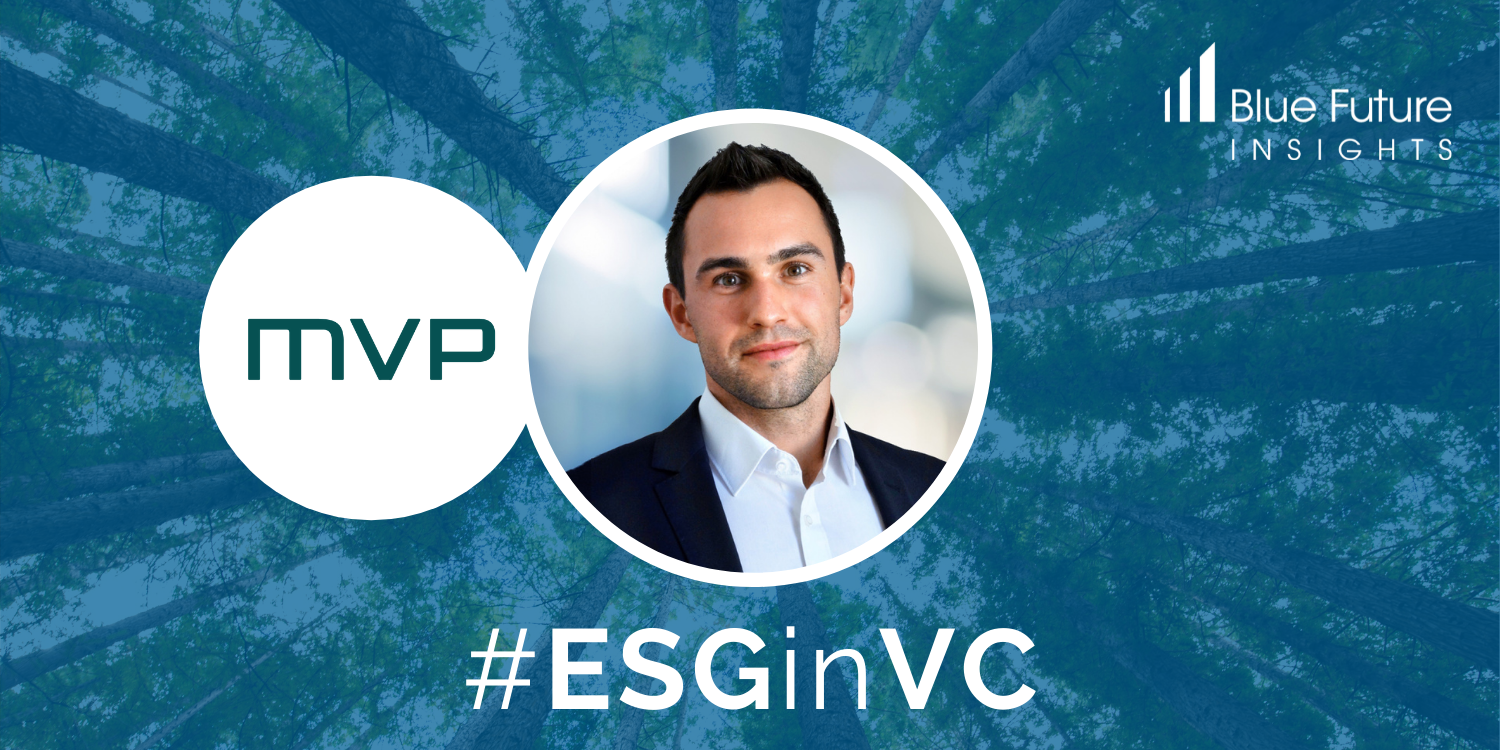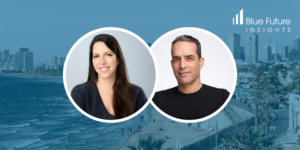With our #ESGinVC initiative, we want to foster a discussion around ESG and help each other develop and improve our frameworks. As part of this initiative, we spoke to leading managers and LPs about their ESG frameworks. The long-form interviews will be published in a reader on our website, while we will regularly post interview extracts on our social media channels (Linkedin — Twitter — Medium).
The extract below is from the interview with Julian Klaiber, Investment Associate at Munich Venture Partners.
Previous interviews include: Kinga Stanislawska (Experior VC, European Women in VC), Miki Yokoyama (Tech Founders), Fabian Heilemann (Earlybird, Leaders For Climate Action), Kanyi Maqubela (Kindred Ventures), David Teten (Versatile VC)
—
As a fund, your central mission is to drive the eco-industrial revolution forward. Have you always had this focus on impact or has it evolved over time?
Munich Venture Partners (MVP) has been investing in the Cleantech space for over 15 years now. In this time, we’ve backed startups in the energy, mobility, food- & agtech and manufacturing sectors – all with a focus on companies that combine technology with sustainability drivers. Back in 2013, we became a signatory of the UN Principles for Responsible Investment and since then, we measure and report the ESG performance of our portfolio companies.
You have implemented a concept called Triple Top Line Value Creation into your investment strategy. Can you tell us more about this?
The Triple Top Line concept is based on the idea that when building a product or business, one should consider the value that can be created on the three pillars of economic profitability, environmental impact and social equity from the very start. Instead of developing a profitable product and then trying to make it as “green” as possible (which often comes with an economic trade-off), the focus of a business should be on triggering the mutually reinforcing power between profit, the environment and social equity and generate positive gains on all of them. If revenues grow, positive social and environmental impact grows automatically, too.
“… the focus of a business should be on triggering the mutually reinforcing power between profit, the environment and social equity…”
Startups that can achieve this triad have a distinctive competitive advantage. By contrast, we see that companies who have exclusively focused on profits now face challenges from the rising prices of emission certificates or the newly introduced supply chain law in Germany. For our investments, we look at whether a startup can deliver value along the Triple Top Line – or if we can help them get there. For simplicity, we can illustrate the Triple Top Line as a fractal triangle, with economy, environment, and social equity in the corners. Within this triangle are 3×3 fractals, one for each possible combination of the vertices.
Pre-investment, we look at each of the 9 fractals and ask what is the value the company can create there. From the answers to these questions, we can then define 9 KPIs and targets and track the performance over time.
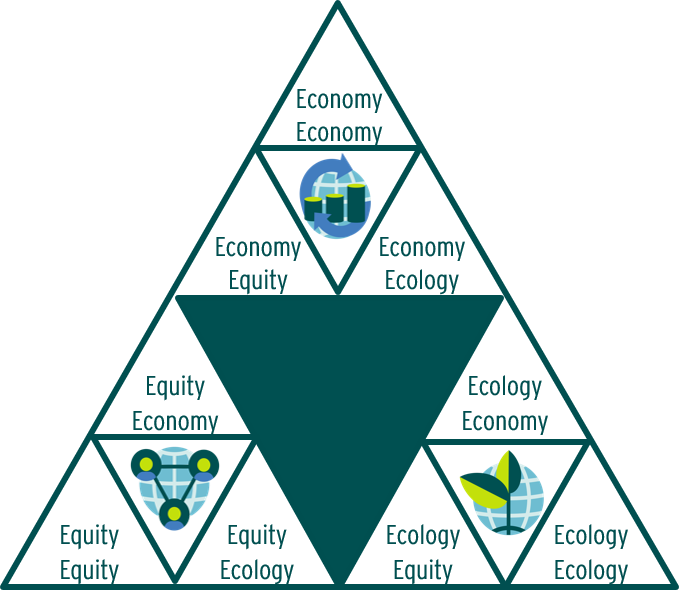
In which verticals do you wish to see more entrepreneurial activity? Are there any problems that you hope European entrepreneurs will focus on more?
If we look at where today’s environmental and social issues originate in, there is basically no sector that does not need to change and where we do not need innovative solutions to drive this change. Just as one example: the energy-efficiency of buildings remains a huge challenge and at the current speed of renovations in Germany, we will need 250 years to reach the CO2 emission targets for the sector. Startups could help us achieve quicker wins here.
“…there is basically no sector that does not need to change and where we need innovative solutions…”
Similarly, material extraction accounts for 90% of biodiversity loss. This makes a case for the need for alternative materials and for innovation in the heavy industries overall. Personally, I am a big fan of the concept of circular economy. Hence, I hope to see ever more solutions that take us away from the linear take-make-waste model and at the same time unlock the economic potential, which in the EU alone could create a net economic benefit of € 1.8 trillion.
How do you assess the potential impact of startups before you invest and how do you track their results after investing?
As mentioned before, we use the Triple Top Line tool to see which impact potential a startup has before investing, as well as to track their performance until the exit. This includes examining which contribution the startup has to the UN Sustainable Development Goals. Additionally, we regularly conduct an assessment on the more conventional ESG KPIs, striving to limit it to as few as possible KPIs that are of the greatest relevance for the growth of the company.

Over the past years, we have gathered quite some experience and reference data in these processes which allows us to do much of this internally. If in the due diligence or later we realize that sufficient and reliable impact data is not available, we have a number of certified external service providers that we work with, for example to assess the product lifecycle or conduct a CO2 footprint analysis. Furthermore, we suggest and support our portfolio companies to implement software solutions to steadily track operational ESG KPIs.
To derive insights and action recommendations, we regularly discuss the results on the impact and ESG assessment within our investment team and align with the management teams of the startups.
What advice would you give to other VCs who want to better tackle ESG responsibility and hold themselves accountable?
Most importantly, I would like to encourage every VC to consider ESG criteria in their investment strategy in the first place – be it only because studies show that it improves financial returns and is a useful tool for risk controlling.
If you have made that decision, I would suggest keeping the process as simple as possible, particularly for the startup you are engaged with. From our perspective, it is important to focus on ESG aspects that actually deliver value to the company rather than having another extensive reporting module. Similarly, we check with our co-investors whether we can bundle and align ESG-related requests to not overburden the startup.
…”it is important to focus on ESG aspects that actually deliver value to the company rather than having another extensive reporting module.”
Another focus should be on the accountability of your ESG engagement. While it clearly is a positive development that more and more VCs commit to ESG, one can at the same time read more and more shiny statements about impact without credible underlying proof points. Lastly, lead with example: assess your own firm’s ESG performance, challenge it, and improve your internal processes just as you would do with your portfolio companies.
—
About Julian Klaiber
Julian Klaiber is Investment Associate at Munich Venture Partners (MVP) where he is responsible for new investments and is engaged in the advisory board of several portfolio companies. Additionally, he is one of the team members driving MVP’s activities in the context of ESG. Prior to joining MVP, Julian powered the development of a social impact startup and worked as international project manager. Julian holds a Master’s degree in International Business where he set a focus on studies in the context of social entrepreneurship and impact investing.
About Munich Venture Partners
Munich Venture Partners is a European venture capital investor backing entrepreneurs driving the eco-industrial revolution with transformative technologies. The investment focus is on sectors with CO2 emission-intensive value chains: energy, mobility, agriculture and food, and industrial technologies. MVP has more than 15 years of experience investing in cleantech startups across Europe, including investments in recent success cases relayr and sonnen.
About Marco Cesare Solinas
Marco is an Analyst at Blue Future Partners, where he is responsible for sourcing and analysing new investment opportunities. He is passionate about Technology and Venture Capital and making an impact with investments. He focuses on both direct and indirect investments.
Previously, he has built an international and multicultural background across Italy, US, Germany, Turkey and Malaysia. Marco holds a CEMS Master’s in International Management and a Bachelor’s in Economics and Finance from Bocconi University.
Linkedin — Twitter — Medium
About Blue Future Partners
Blue Future Partners is a Fund of Funds with decades worth of experience in investing in Venture Capital. We specialize in backing Emerging Managers focused on early-stage technology investments. We are people-centric and relationship-driven. We have a global mandate and existing relationships with Emerging Managers in the US, Europe, Israel, China and South East Asia.
Website — Linkedin — Twitter — Medium


